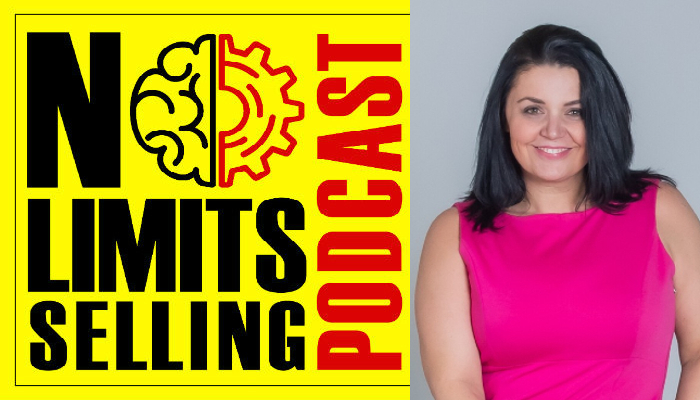Natalie Davison on Marketing vs. Sales
On Episode 94 of The No Limits Selling Podcast, we have Natalie Davison, the CEO and visionary at Marrow Marketing. Be prepared to dig deep because she won’t allow you to stay on the surface. Natalie helps her clients think bigger about their businesses and stay on-brand.
An expert at building audiences, particularly on social media, Natalie’s work in this space has been recognized by Canadian Contractor Magazine, The Financial Post, and Social Media For Business, For Dummies. She believes in a perfect blend of speaking + listening and facilitating truly interactive workshops that will leave audiences with an entirely new perspective on their lives and their businesses.

Contact Natalie:
[EDITOR’S NOTE: This podcast is sponsored by No Limits Selling. It is a fun, fast-paced podcast that delivers hard-fought business advice that you can implement today to improve your sales and performance]
Interested In Our Real Estate Coaching Services? Explore Our Website: Link
Feeling Not Well Today? You Can Use Our Mindset Boosters App To amp Up Your Mood: Link
Find us on Social Media:
LinkedIn | Facebook community | Instagram
Like what do you listen to? Subscribe to our podcast!
Ready to become fearless? We can help you become fearless in 60 days so you accomplish more in your career Schedule A 15 min Call with UmarSummary
Introduction and Background
The podcast begins with an introduction of Natalie Davidson, a successful entrepreneur and business coach. Natalie shares her background, including her early career in sales and marketing, and her journey to becoming a business coach. She discusses her passion for helping others achieve their business goals and the satisfaction she gets from seeing her clients succeed.
Natalie's Approach to Business Coaching
Natalie explains her unique approach to business coaching, which involves a combination of practical business strategies and personal development. She believes that success in business is not just about having the right strategies in place, but also about personal growth and mindset. Natalie emphasizes the importance of self-belief and confidence in achieving business success.
Challenges in Business and Overcoming Them
The podcast delves into the common challenges that business owners face, such as lack of direction, fear of failure, and difficulty in scaling up. Natalie shares her insights on how to overcome these challenges. She stresses the importance of having a clear vision, setting realistic goals, and being resilient in the face of setbacks.
Success Stories and Case Studies
Natalie shares several success stories and case studies from her coaching practice. These stories illustrate how her coaching methods have helped businesses overcome challenges and achieve their goals. The stories also highlight the transformational impact of coaching on the personal and professional lives of her clients.
Advice for Aspiring Entrepreneurs
Towards the end of the podcast, Natalie offers advice for aspiring entrepreneurs. She encourages them to believe in themselves, to be persistent, and to never stop learning. She also emphasizes the importance of seeking help and guidance when needed, and not being afraid to take risks.
Conclusion
In conclusion, the podcast with Natalie Davidson offers valuable insights into the world of entrepreneurship and business coaching. Davidson, with her rich background in sales and marketing, has developed a unique approach to business coaching that combines practical strategies with personal development. She addresses common challenges faced by business owners, such as fear of failure and scaling up, and provides solutions based on clear vision, realistic goals, and resilience. Through various success stories, she illustrates the transformative power of her coaching methods.
Her advice to aspiring entrepreneurs emphasizes self-belief, persistence, continuous learning, and the courage to seek help and take risks. Ultimately, Davidson's optimistic outlook on entrepreneurship and her dedication to her coaching practice underscore her belief that with the right mindset and strategies, anyone can achieve business success.
Questions & Answers
Who is Natalie Davidson and what does she do?
What is Natalie Davidson's approach to business coaching?
What are some common challenges in business according to Natalie Davidson?
Can you share some success stories from Natalie Davidson's coaching practice?
What advice does Natalie Davidson have for aspiring entrepreneurs?
What is Natalie Davidson's outlook on the future of entrepreneurship?
Don’t miss this opportunity to transform your real estate career with one-on-one coaching. As an experienced real estate coach, I, Umar Hameed, am dedicated to helping you unlock your full potential and achieve your real estate goals. To learn more about who am I and my clients ↓
If you’re ready to take the next step, book an appointment with me today and begin your journey toward success in the real estate industry.
